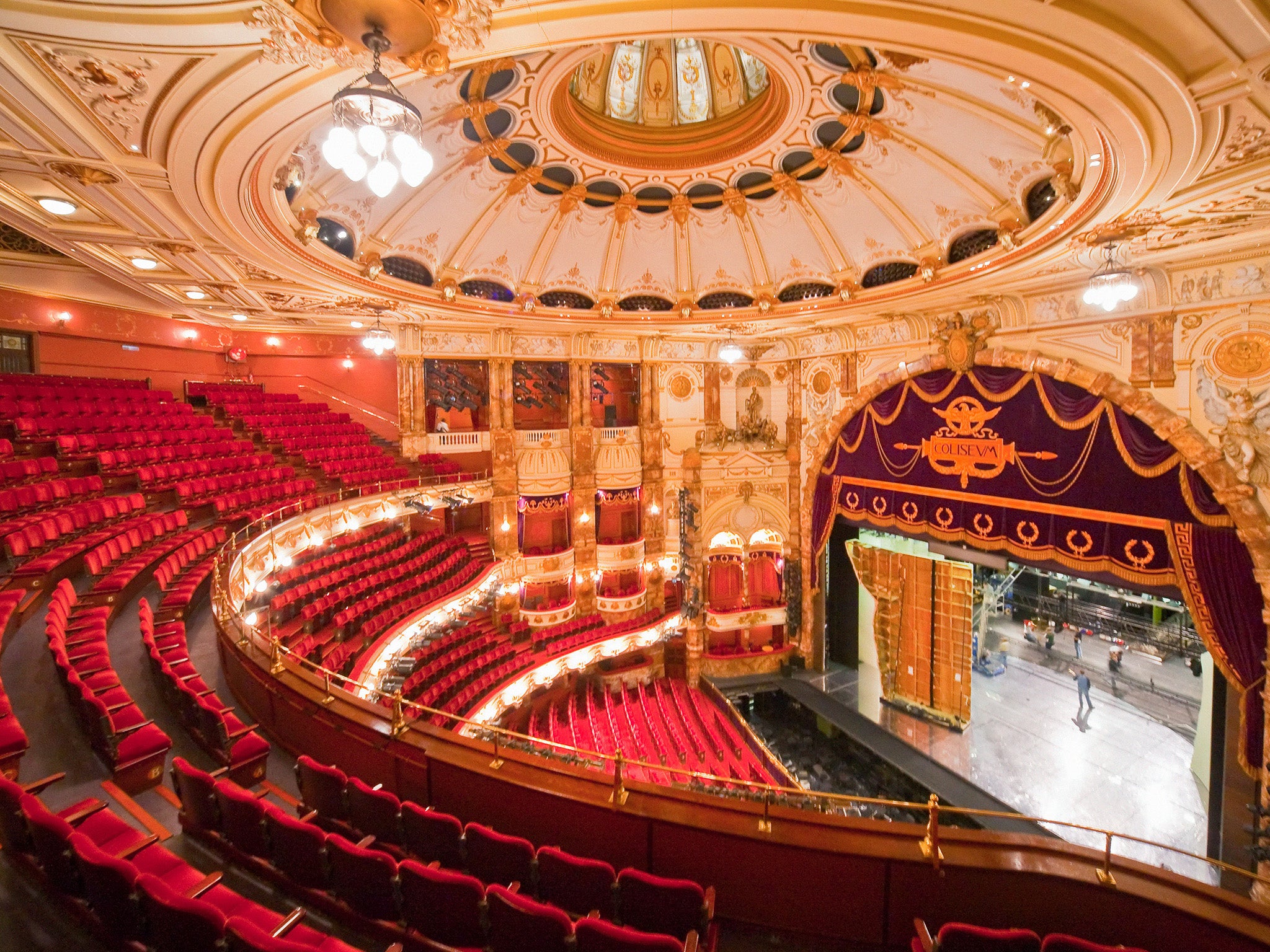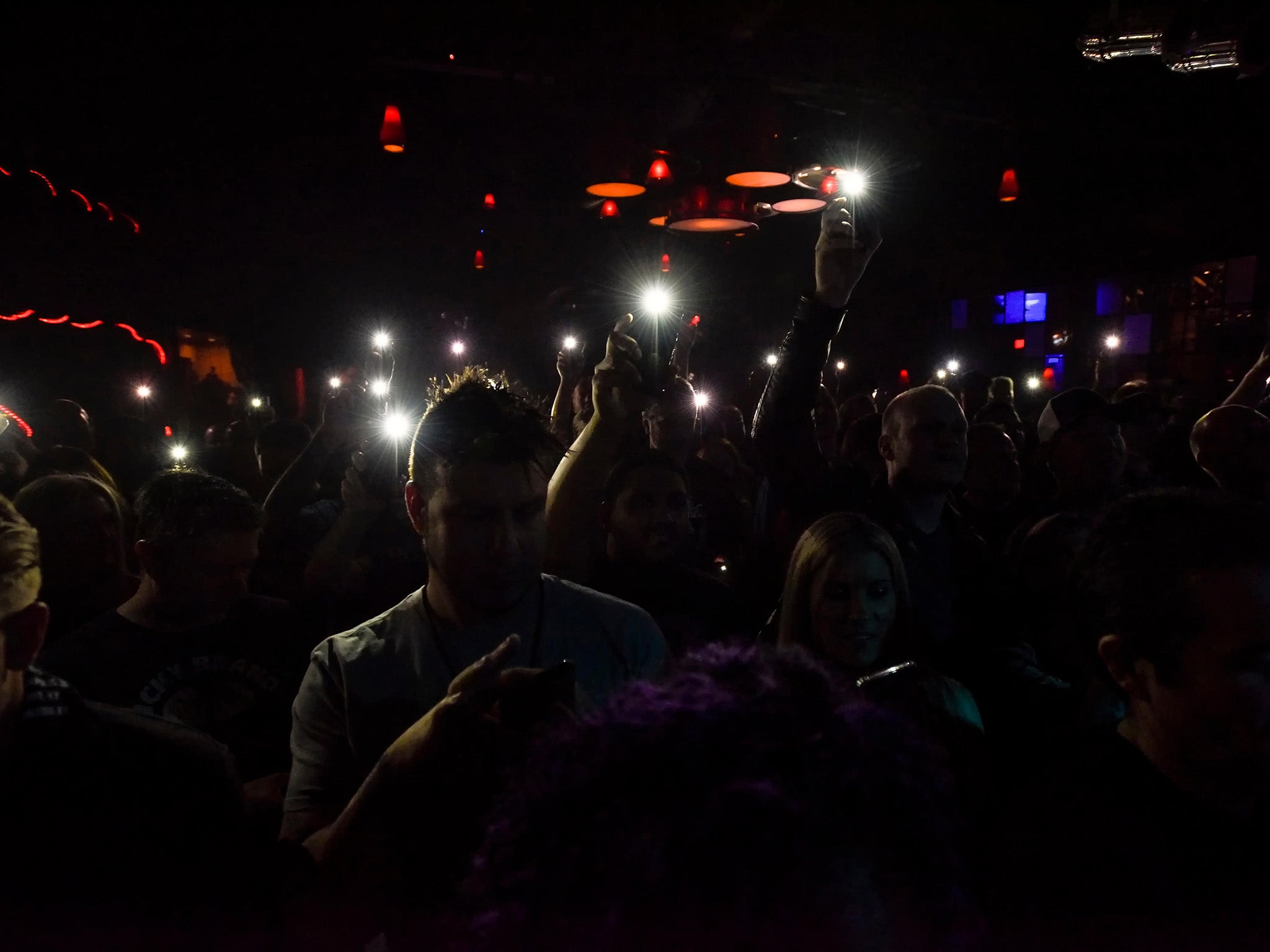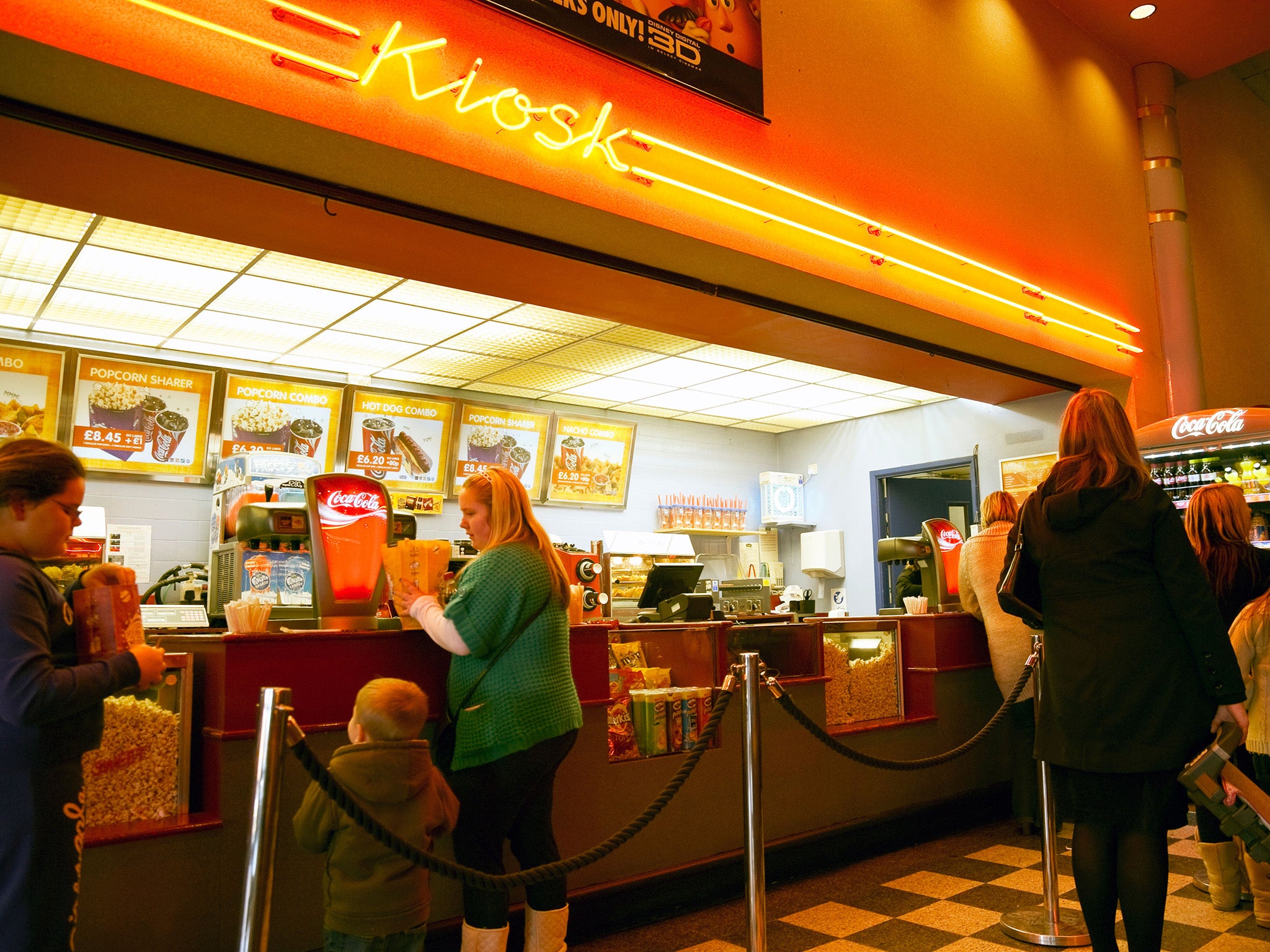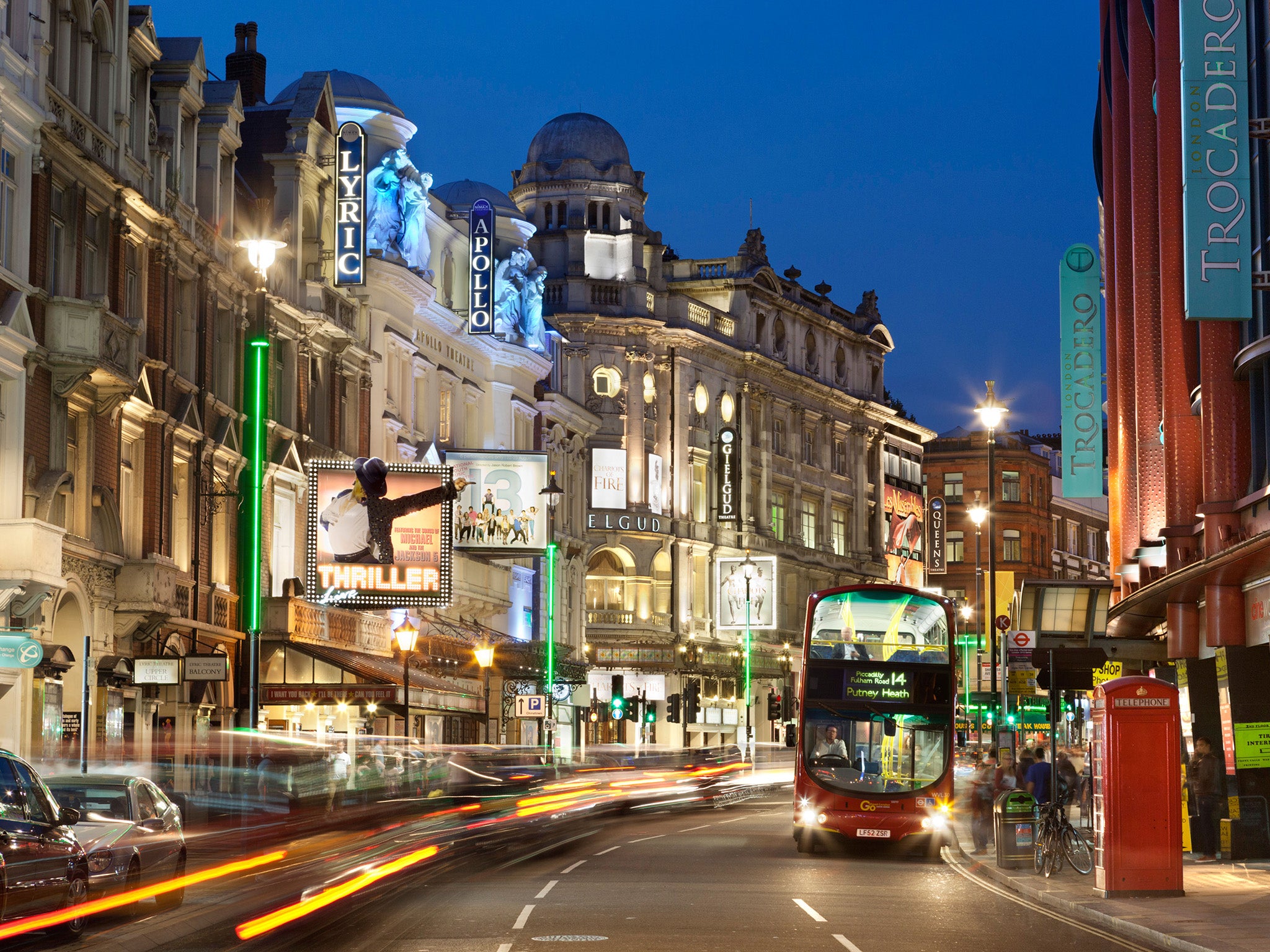Audience etiquette: The dos and don'ts of theatre, concert and cinema viewing
There’s clearly an ideological struggle going on between respect for the sanctity of the text and the profits that can be made from a noisy snack

One of the more puzzling indignities I have suffered at an arts event was at a Leonard Cohen concert at the O2 arena in London.
I took in to the gig a bottle of water I had bought a few steps away. The steward insisted that I (and all other attenders with water) unscrew and hand over the top. When I asked why, he replied that it was to stop us hurling the bottles at the stage.
It conjured up a marvellous image – the then septuagenarian Cohen being pelted with water bottles by a crowd of manic fans, many of whom were not that much younger than the star.
The question of what one can and cannot take into the auditorium as part of an audience, be it a gig, a play, an opera, a ballet, is a vexed one. The answer seems to vary from venue to venue, and art form to art form, with little consistency and even less logic.
What is the correct etiquette for being in an audience?
The fraught subject became even more fraught, and considerably more bizarre, this month, when the English National Opera at London’s Coliseum banned audience members from taking in any food or drink bought outside the venue to the musical Chess, which it was staging.
The reason, said management, was that people had been “picnicking” in their seats (and, according to a management spokesperson, “swapping water for gin and vodka”).
The management ruling alarmed the Coliseum stewards who felt they were being asked to act in an elitist manner. Those going to the musical were not to be allowed to take in food or drink, but no such ban would apply to opera-goers, when the new season begins.

Nothing is more certain to cause consternation in the arts world than an accusation of elitism. And the pages of The Stage were full of denunciations of this latest breach of the cultural egalitarianism code.
Rapidly ENO management amended its ruling to make it apply to opera-goers as well. So no more munching on a chocolate bar thoughtfully as Mimi meets her end. At least, not if that chocolate has been purchased outside the venue.
ENO chief executive Stuart Murphy said: “It’s clear to us all at ENO and the London Coliseum that our food and drink policy needed finessing and this tailored policy may have given the wrong impression about us and our values.”
Actually there has been a fair bit of finessing going on over audience etiquette in these matters. Take Nimax theatres, owners of several prestigious West End venues. They brought in a “scrunch” test to outlaw sweet and chocolate wrappers that might be so noisy as to spoil the atmosphere. And they stopped selling certain products with noisy packaging.
Nimax has form for taking on bad behaviour in the audience. A few years back behaviour had reached such a low level with reports of texting, talking, canoodling and even pleasuring one’s companion, that actors were beginning to notice what was going on behind the fourth wall.
Sir Patrick Stewart and Rosamund Pike were two who complained about a drop in standards of etiquette. Nimax employed security guards to eject rowdy and boisterous audience members.
But, back to the food and drink quandary. There seems to be a lack of unanimity among theatre owners about how disturbing packaging and scrunching can be. Ambassador Theatre Group runs in-seat ordering services for food and drink at their venues.
There’s clearly an ideological struggle going on between respect for the sanctity of the text, the actors and one’s fellow audience members, all of which demands some hush, and the profits that can be made from a noisy snack.

The late playwright Harold Pinter had no doubts. He was taking no chances when he mounted a production I attended in Watford, ordering that all confectionery outlets in the theatre be closed, to avoid the possibility of scrunching altogether.
When one discusses audience etiquette, one inevitably comes to the subject of mobile phones. Incredibly, one still does encounter people keeping their phones on during a performance and even having conversations. I do, though, rather treasure the loud mobile phone conversation in the stalls: “Sorry, I can’t talk, I’m at the theatre … No, not very.”
But if we are all agreed that you should never speak on a mobile phone during a performance, should you at least be allowed to tweet? One American theatre has a Twitter zone in the auditorium, a bunch of seats reserved for those who like to tweet, with the management clearly hoping that the tweets will be about the show, and favourable ones at that.
A British venue thought about following suit, but eventually decided the nation wasn’t quite ready for it.
And tweeting can help a show. One artistic director told me that Stephen Fry, with his millions of followers, once tweeted in the interval that he was loving the performance – and the whole run sold out the next day.
But interval tweeting is very different from tweeting during the performance – or even having a phone on at all during a performance. The light from a mobile phone, when someone thinks they are reading their messages in private, can be hugely distracting.
So, what should be the rules on audience etiquette?
A drink seems not unreasonable, but I’m with Harold Pinter when it comes to noisy eating during a performance. One should be able to go a couple of hours without food. Believe it or not, one West End theatre witnessed a group of people in the balcony seats enjoying a Chinese takeaway.
Mobile phones should be switched off, not just put on mute with furtive glances at the phone, the light disturbing all around. Perhaps more actors should follow the example of the late Richard Griffiths, who suddenly came out of character in a performance to berate a phone user and ask him to leave the building.
I’d also adopt something akin to a three coughs and you’re out policy. Theatres are not hospitals and repeated offenders should be spoken to by an usher and advised in the politest terms that they may wish to come back and see the performance when they feel better.
Latecomers should be made to feel downright awkward and embarrassed. I loved the time when Barry Humphries spotted a couple of latecomers to his show, had the lights turned on them and asked them their names in case he wished to refer to them again, adding: “And, Peter and Janet, I will be referring to you again.”

There are breaches of etiquette that one simply can’t foresee and scarcely knows how to react to. The award-winning play Jerusalem with Mark Rylance opened with a young girl singing Jerusalem on stage.
When I saw the production, an elderly gent in the audience was involuntarily singing along, visibly startling the actress. Perhaps it was a reflex action by the elderly gent, his subconscious transported back over the decades to school assemblies.
Moments like that I’d urge that we allow. They are part of the unpredictability of live performance, and the interaction between audience and performers.
I’d also allow, indeed legislate for, the right to take sealed bottles of water into rock gigs. Prohibiting that simple, and sometimes essential, pleasure is beyond ludicrous.
And here are a few more etiquette guidelines.
At rock gigs, don’t talk during the quiet numbers, don’t shout which song is coming next just because you have been to the show the night before, don’t push past the same people to get to the bar more than three times a night. If you spill beer over someone, offer to pay the dry-cleaning bill.
In cinemas don’t talk through the trailers. Trailers are an art form.
At stand-up comedy, when picked on by a comic in search of an easy laugh, answer with an exaggerated speech defect to embarrass them. And, of course, challenge them on their DVD earnings and tax affairs.
Then, of course, there are longstanding examples of audience etiquette, which to me simply denote one-upmanship, and possibly elitism. Why do so many classical music aficionados cough between movements in a symphony?
Do they really all have frogs in their throats at that same moment, or is it just a way of saying “I know my music”, and coughing at the right time, even when you don’t have a cough, shows not just knowledge of the art form, but good breeding.
Annoy the between-movements coughers by clapping between movements. It’s something they deplore.
I would also ban audiences from breaking into applause when a famous star walks on stage – it’s a breach of the fourth wall, the atmosphere, and a bit of an insult to the rest of the cast.
One could go on. Being in an audience is a tough gig. You have to go hungry, phoneless, and without a single canoodle. But who knows, you might enjoy the show.
David Lister is the former arts editor of The Independent
Join our commenting forum
Join thought-provoking conversations, follow other Independent readers and see their replies
Comments
Bookmark popover
Removed from bookmarks